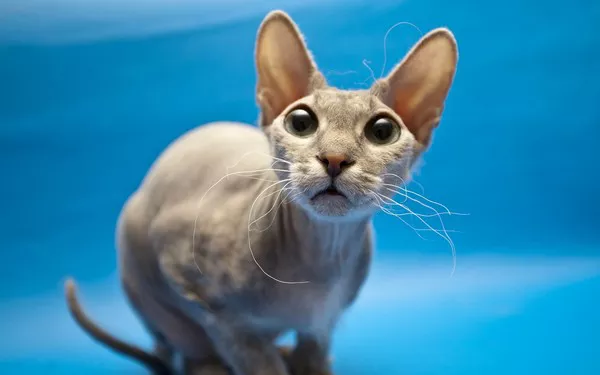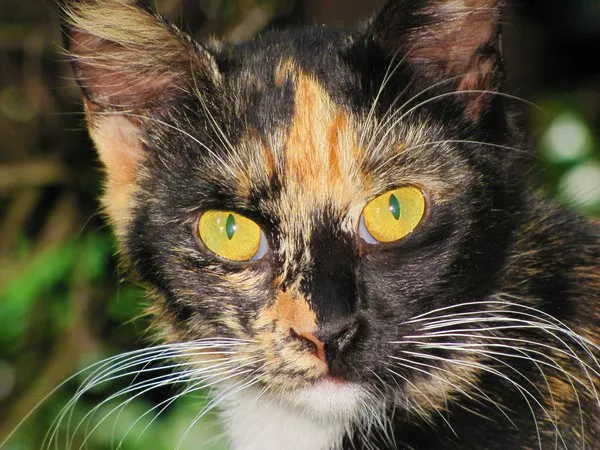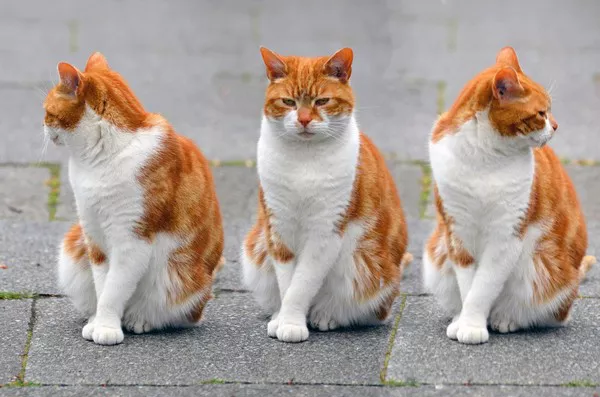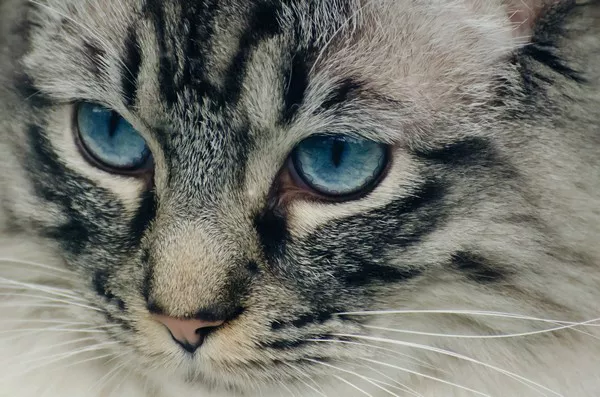Sphynx cats are a unique and captivating breed, known for their hairless appearance and affectionate nature. However, their distinctive physical traits also come with specific dietary needs. Understanding what to feed Sphynx cats is crucial for maintaining their health, energy levels, and overall well-being. In this comprehensive guide, we will delve into the nutritional requirements of Sphynx cats, explore the best food options available, and provide insights on feeding schedules, hydration, and special considerations for their care.
Nutritional Requirements
High-Protein Diet
Sphynx cats are obligate carnivores, meaning that their diet must be primarily composed of animal-based proteins. A high-protein diet is essential for several reasons:
Energy Requirements: Sphynx cats tend to have higher energy levels than many other breeds due to their active nature and unique metabolism. Protein provides the energy necessary for their playful antics and daily activities.
Muscle Maintenance: The protein content in their diet supports muscle maintenance and growth. Since Sphynx cats are known for their playful and often acrobatic behavior, a strong muscular structure is vital for their agility.
Immune Function: A protein-rich diet helps strengthen the immune system. Essential amino acids found in animal proteins, such as taurine, are crucial for maintaining overall health.
In general, look for cat food that contains at least 30% protein, preferably derived from high-quality sources such as chicken, turkey, beef, or fish.
Essential Nutrients
In addition to protein, Sphynx cats require a variety of essential nutrients to thrive:
Taurine: This amino acid is vital for heart health, vision, and overall cellular function. Sphynx cats, like all felines, cannot produce enough taurine on their own, so it must be included in their diet.
Vitamins: Important vitamins, such as A, D, E, and B vitamins, support various bodily functions, including immune response, skin health, and energy metabolism.
Minerals: Key minerals, such as calcium, phosphorus, and potassium, are essential for bone health, muscle function, and nerve transmission.
Fatty Acids: Omega-3 and omega-6 fatty acids are crucial for maintaining healthy skin and a shiny coat, which is especially important for Sphynx cats as they lack fur.
A well-balanced diet that incorporates these essential nutrients will promote optimal health in your Sphynx cat.
Best Food Options
When considering what to feed Sphynx cats, it’s essential to choose high-quality cat food that meets their nutritional needs. Here are some recommended food options:
High-Quality Cat Food
Investing in premium cat food is crucial for your Sphynx cat’s health. Look for brands that list real meat as the primary ingredient. Here are a couple of highly regarded options:
Purina Cat Chow Naturals Original: This cat food is formulated with high-quality protein sources, essential vitamins, and minerals to support your cat’s overall health. It is designed to be highly digestible, which is beneficial for maintaining a healthy digestive system.
Blue Buffalo Tastefuls Adult Indoor Cat: Blue Buffalo emphasizes natural ingredients, and their Tastefuls line features real meat as the first ingredient. Additionally, this food includes wholesome grains and is formulated to promote a healthy weight, which can be especially important for Sphynx cats that may have lower activity levels indoors.
Wet Food
Incorporating wet food into your Sphynx cat’s diet can provide several benefits:
Hydration: Sphynx cats are at risk of dehydration, especially if they primarily eat dry kibble. Wet food has a high moisture content, which helps keep them hydrated.
Nutritional Variety: Wet food often contains different protein sources and textures, providing variety in your cat’s diet and making mealtime more enjoyable.
Palatability: Many cats find wet food more appealing than dry kibble. The aroma and taste of wet food can entice picky eaters, encouraging them to eat a balanced diet.
Raw Food
Feeding raw food can be a beneficial option for Sphynx cats, but it requires careful consideration and preparation. Here are some points to keep in mind:
Raw Meat and Fish: Raw diets can include high-quality raw meat and fish (with bones removed) to ensure your Sphynx gets the necessary protein and nutrients. Popular options include chicken, turkey, beef, and fish like salmon.
Nutritional Balance: It’s vital to ensure that a raw diet is nutritionally balanced. Consider consulting with a veterinarian or a pet nutritionist to formulate a proper raw diet that includes all necessary nutrients.
Safety Considerations: When feeding raw, always prioritize food safety. Ensure that the meat is fresh and sourced from reputable suppliers to minimize the risk of bacterial contamination.
Avoiding Certain Ingredients
When selecting food for your Sphynx cat, be aware of certain ingredients that should be avoided:
Fillers and Byproducts
Many commercial cat foods contain fillers, artificial additives, and byproducts that can be detrimental to your cat’s health. Here are some components to avoid:
Corn and Soy: These ingredients are often used as fillers in cat food but provide little nutritional value. They can also lead to digestive issues.
Artificial Additives: Preservatives, colors, and artificial flavors can be harmful to your cat’s health. Opt for natural and minimally processed foods.
Animal Byproducts: Foods that list “animal byproducts” as an ingredient can vary widely in quality and may contain unhealthy parts of the animal. Look for foods that specify real meat sources.
Grains
Grains are not a natural part of a cat’s diet and can lead to digestive issues. Sphynx cats are particularly sensitive to certain grains, which can result in allergies or intolerances. Therefore, it is advisable to choose grain-free options that provide a higher concentration of animal-based protein.
Feeding Schedule
Establishing a consistent feeding schedule is essential for Sphynx cats. Here’s how to create an effective routine:
Consistent Meals
Sphynx cats thrive on routine, and regular meal times help maintain their digestive health. Here are some recommendations:
Feeding Frequency: Adult Sphynx cats should be fed two to three meals a day, while kittens may require more frequent feedings due to their higher energy needs.
Timing: Choose specific times each day to feed your cat, creating a predictable routine that can reduce anxiety and encourage healthy eating habits.
Portion Control
Understanding portion sizes is crucial for maintaining a healthy weight in Sphynx cats. Here’s how to gauge the right amount:
Age and Weight: Consider your cat’s age, weight, and activity level when determining portion sizes. Generally, adult Sphynx cats require about 20 calories per pound of body weight daily, but this can vary based on their individual needs.
Consult Labels: Most commercial cat foods provide feeding guidelines based on your cat’s weight. Use these guidelines as a starting point and adjust based on your cat’s specific needs.
Hydration
Hydration is a critical aspect of your Sphynx cat’s health, especially given their unique characteristics. Always ensure that your Sphynx cat has access to fresh, clean water. Hydration plays a vital role in various bodily functions, including:
Kidney Health: Adequate water intake helps support kidney function and prevents urinary issues, which can be common in cats.
Digestive Health: Proper hydration is essential for digestion, aiding in nutrient absorption and preventing constipation.
As previously mentioned, wet food can significantly contribute to your cat’s hydration levels. The moisture content in wet food provides an additional source of water, which is particularly beneficial for Sphynx cats who may not drink enough water on their own. Incorporating wet food into their diet can help ensure they remain well-hydrated.
Special Considerations
Skin Care
Sphynx cats are known for their lack of fur, which makes them prone to skin issues. Therefore, their diet should support skin health in the following ways:
Fatty Acids: Include foods rich in omega-3 and omega-6 fatty acids, as these essential fats help maintain skin moisture and prevent dryness. Consider adding fish oil supplements to their diet if necessary.
Hydration: Keeping your Sphynx cat well-hydrated through wet food and fresh water will also contribute to healthy skin. Dehydration can exacerbate skin problems.
Allergies and Sensitivities
Sphynx cats can be prone to food allergies and sensitivities. Here are some steps to take:
Monitor Reactions: Pay close attention to your cat’s behavior and health. If you notice signs of allergies—such as itching, gastrointestinal upset, or changes in coat quality—consult your veterinarian.
Consult a Veterinarian: If you suspect your Sphynx cat has food allergies, a veterinarian can recommend appropriate dietary changes and may suggest an elimination diet to identify problematic ingredients.
Conclusion
Feeding a Sphynx cat requires careful consideration of their unique nutritional needs. By providing a high-protein diet rich in essential nutrients, choosing high-quality food options, and maintaining a consistent feeding schedule, you can help ensure your Sphynx cat enjoys a healthy and happy life. Remember to stay vigilant for any food sensitivities and consult with your veterinarian when making significant changes to your cat’s diet. With the right approach to cat feeding, your Sphynx cat will thrive and bring joy to your home for many years to come.
Related Topics



























